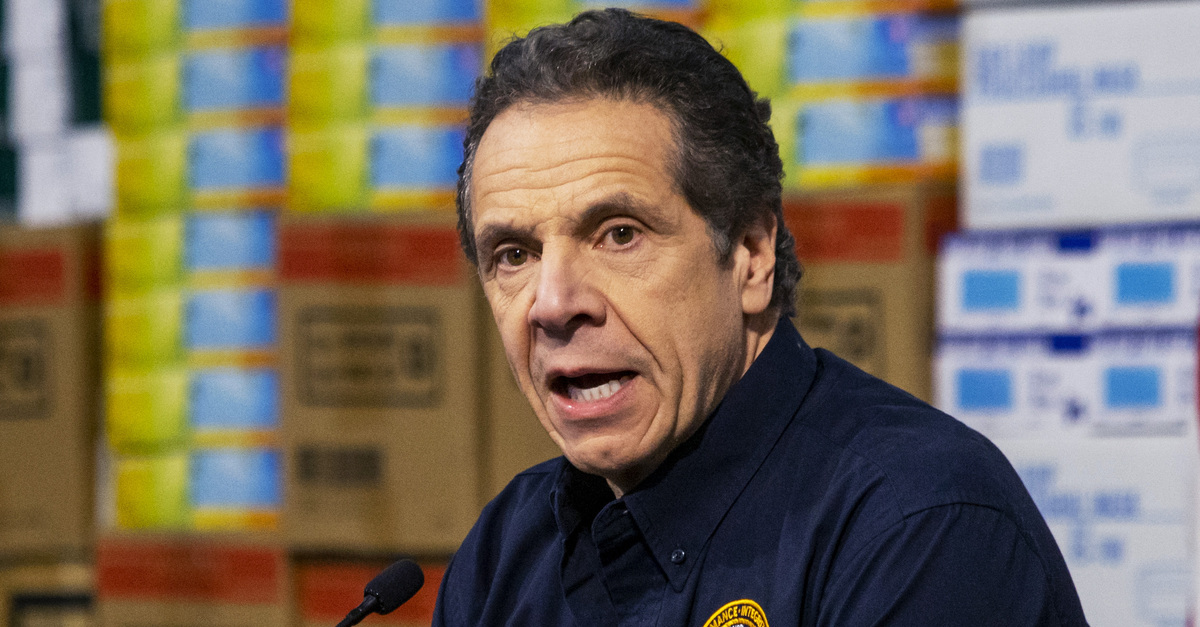
Just days after the Roman Catholic Diocese of Brooklyn, New York asked the Supreme Court of the United States to block COVID-19 restrictions, two New York Jewish synagogues filed their own petition, going a step further. Not only do Gov. Andrew Cuomo’s (D) restrictions against in-person worship services interfere with religious practices, the petitioners argue, but those restrictions were also adopted to specifically target Jewish people.
The governor’s October order limits religious services to either 10 or 25 people, depending on the number of COVID-19 cases in the areas in which the respective institution is located. Like the Catholic diocese, the Orthodox synagogues argue that the restriction constitutes a First Amendment violation, because numerous secular businesses are allowed to operate without any similar capacity restrictions.
But the synagogues allege even more in their petition. They say the restriction affects the Jewish community even worse than it does other religious populations–and they even claim that Cuomo was motivated by a specific desire to target Orthodox Jewish people.
“While Orthodox Jews can engage in other activity outside of prohibited zones,” the petition reads. “[Cuomo’s Order] bars Orthodox Jews principally from attending religious services, as their beliefs prohibit them from vehicular travel to synagogues outside of their restricted zones (unlike practitioners of many other faiths).”
The synagogues also point to Cuomo’s own words to prove that the ordinances singled out the Jewish community. The petition levied allegations against Cuomo as follows:
He threatened “members of the ultra-Orthodox community” that “[i]f you do not agree to enforce the rules, then we’ll close the [religious] institutions down.” He described the COVID-19 “cluster [as] predominantly an ultra-orthodox cluster” and identified “the ultra-Orthodox community” as causing the “problem,” putting any doubt regarding his religious targeting to rest.
“The Governor did not attack religious belief generally,” petitioners argued, “but singled out a particular religion for blame and retribution for an uptick in a society-wide pandemic.”
Despite recent reports that COVID-19 cases have spiked within Orthodox Jewish communities of New York and New Jersey, the petition before SCOTUS argued that “Since the beginning of the pandemic, it is undisputed that Applicants have complied with all State and City mandates.”
The petitioner synagogues say they have “split traditional worship services into smaller group settings to ensure their congregations followed social distancing protocols, and they require their congregants to wear masks during all services—rules with which congregants have fully complied.”
It is unfair to generalize the behavior of noncompliant synagogues with others, the petition argued:
Tellingly, the Governor does not claim that these Orthodox Jewish synagogues ever broke any rules or contributed to the spread of COVID-19. The best the Governor can offer is the claim that some Orthodox Jewish synagogues allegedly broke rules and contributed to spread elsewhere.
Like the Catholic diocese, the synagogues lost at the lower court level. Now they are asking the Supreme Court to issue an injunction against New York’s COVID-19 restrictions pending a full appeal.
Since last Spring, the Supreme Court has rejected challenges to COVID-19 restrictions across the nation. However, two cases brought by churches against such restrictions resulted in 5-4 votes; both were handed down by a SCOTUS including Ruth Bader Ginsburg, and without Amy Coney Barrett.
Justices Clarence Thomas, Samuel Alito, Neil Gorsuch and Brett Kavanaugh have all gone on record to say they would have ruled against the regulations—and many expect Justice Barrett to do the same.
[image via Eduardo Munoz]